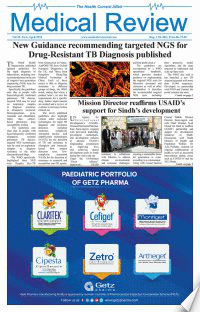By Masood Fareed Malik, Community Activist, Pakistan Hemophilia Patients Welfare Society® People who have a bleeding disorder can bleed longer than normal as their blood does not clot properly. They can also experience spontaneous bleeding into joints, muscles or other parts of their bodies. There are various types of bleeding disorders and some are more common than others. People with hemophilia, a rare bleeding disorder that affects one in 10,000 people, do not have enough clotting factor VIII (Hemophilia A) or, less commonly, clotting factor IX (Hemophilia B), in their blood. A person born with hemophilia will usually have it for life and the severity depends on the amount of factor VIII or factor IX in the blood. Hemophilia is commonly a disorder that a person is born with but rarely it can also develop during their lifetime. The most common bleeding disorder is von Willebrand disease (VWD). People with VWD have a problem with a protein in their blood called von Willebrand factor (VWF) that helps control bleeding. It is generally less severe than other bleeding disorders and many people with VWD may not know that they have it because their bleeding symptoms are very mild. Rare clotting factor deficiencies are disorders in which one of several clotting factors is missing or not working properly. Less is known about these disorders because they are diagnosed so rarely. In fact, many have only been discovered in the last 40 years. Inherited platelet disorders are conditions in which the platelets in blood don’t work the way they should, resulting in a tendency to bleed or bruise. For information related to Hemophilia in Pakistan, visit www.hemophilia.org.pk or join us on Facebook: Pakistan Hemophilia Patients Welfare Society-NMO WORLD HEMOPHILIA DAY 2015 Every year on April 17, World Hemophilia Day is observed around the world to increase awareness of hemophilia and other inherited bleeding disorders. This is a critical effort with an ultimate goal of ensuring better diagnosis and access to care for the millions who have a rare bleeding disorder yet remain without treatment. A significant amount of care, support, and advocacy is done through extended families which come in many forms: medical teams, friends, and colleagues, as well as immediate relatives. These communities share the ability to come together in large numbers and help improve people’s lives. World Hemophilia Day provides an opportunity to talk to your extended family and friends, colleagues, and caregivers to raise awareness and increase support for those living with an inherited bleeding disorder. “We are all working together in the fight to raise awareness and improve care.” said Hassan Raza, President-NMO, PHPWS For World Hemophilia Day 2015, PHPWS through its provincial Chapters will be organizing multiple awareness raising events in various cities across the country. In Pakistan, there are approx. 2600 people diagnosed with hemophilia. These are less than 10% of the total estimated numbers of hemophiliacs who have hemophilia in Pakistan. “We all work together, support one another, and help out when someone needs it. That is what family does for one another.” Says Masood Fareed Malik, Community Activisit, PHPWS
Building a Family of Support on April 17, World Hemophilia Day
Pakistan Hemophilia Patients Welfare Society [PHPWS]
Building a family of support
[PHPWS]


